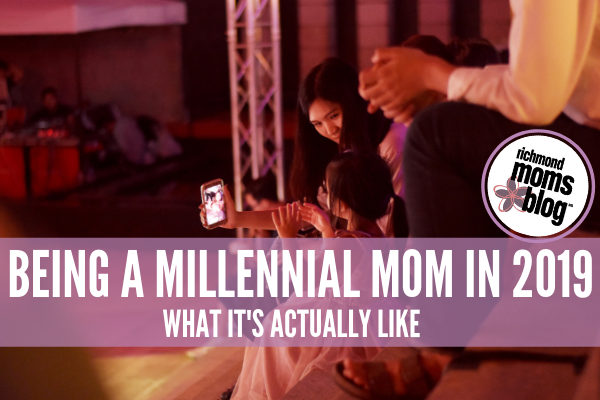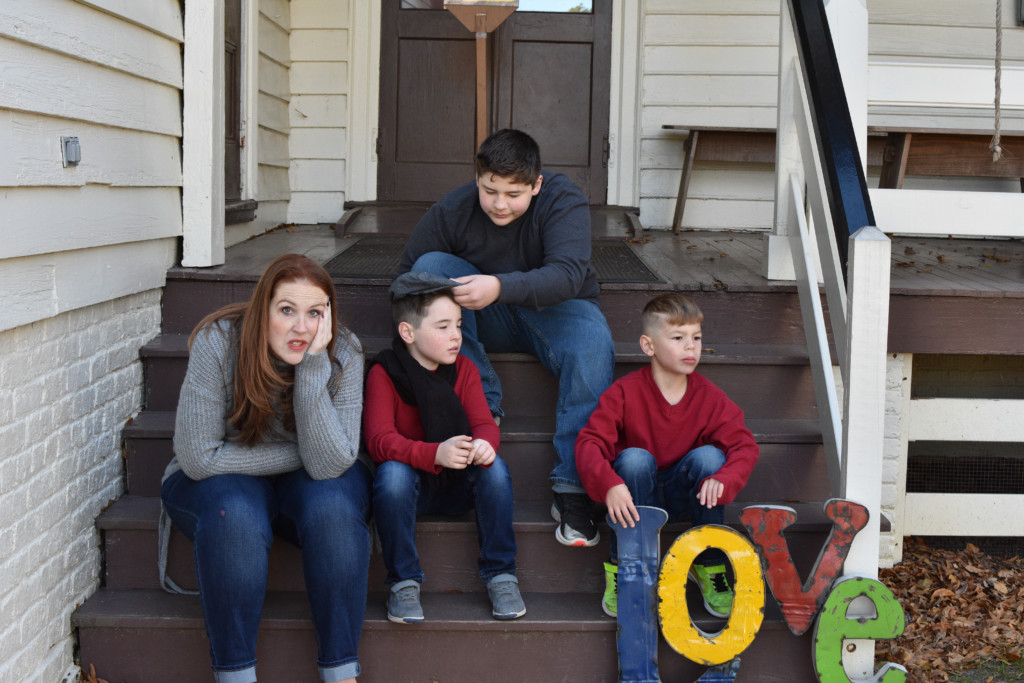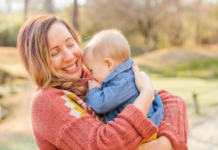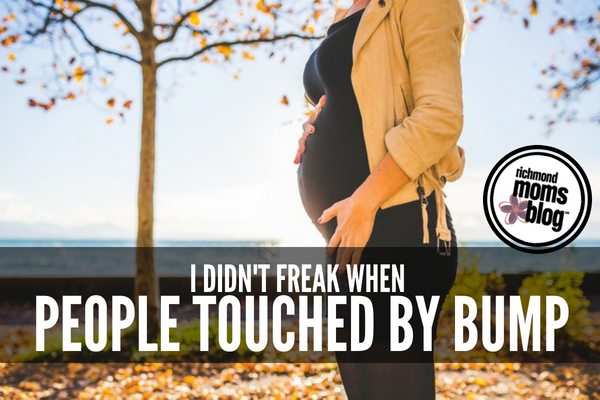[fblike style=”standard” float=”left” showfaces=”false” width=”450″ verb=”like” font=”arial”]
[divider_flat]

“Tonight I stood next to my daughter’s crib as tears started to build up. How could something so innocent, so beautiful, so wanted, bring so much hurt. Hurt because I feel guilty for feeling hurt, and hurt because after just 5 months, my marriage feels broken. Having a baby seemed like the perfect next step in our seemingly perfect life together. We both had careers. We had money. We vacationed and laughed and loved. And now it was time to settle down with a family. The first couple months seemed so much easier, dare I say, more magical. Magical?! There doesn’t seem to be anything magical about arguing over whose life is harder, who did more work, who is doing the better job. Nothing magical about realizing that the daughter you have wanted since you were old enough to want children drives thoughts of running away and leaving. If only! If only I could just get away for a few days, I could come back a better mom and wife. But tomorrow is another day. The same exact day again.”
My name is Danielle Cauley, and I’m a Licensed Professional Counselor in Virginia. The above was a sleep-deprived, tired, and frustrated text I had written in a text box to myself on my phone on July 28th, 2016. Until now, I’ve never shared that with anyone—not even my husband. I’d still say that very, very few people know the struggle I had with postpartum depression and anxiety. As a therapist who now specializes in working with women before, during, and after pregnancy, I want to talk about it. I want to normalize it. I want other mothers to know they’re not alone.
I remember that day above clearly.
I remember it had been a long day. I was back to work, I was tired, I was frustrated, she wasn’t sleeping, and I just wasn’t sure I could take any more.
I remember holding her like a ticking time bomb as I gently placed her overly tired body in her crib. I remember sliding one hand out, and then the other, so as to not awaken her. I remember the sense of relief kicking in as I began to walk away…until she woke up and began to cry again.
I remember standing over the crib as tears started to stream down my face.
“WHY WON’T YOU STAY ASLEEP!?”
I remember thinking, “Now I know how Moms shake their babies!” I remember feeling like a terrible, horrible mother for thinking that.
Most of all, I remember the guilt setting in.
The guilt that ate away at me almost daily because I wasn’t connected to her in the ways I thought I would be. The guilt that completely consumes you as you compare yourself to every other mother in the world. The guilt that you allow to dictate decisions you make, even if they don’t feel right. The guilt that is a total you-know-what during those first few months—hell, the first year!
I literally remember a conversation I had with my husband where I told him that even though I loved her, if anything happened, and I had to choose between the two of them, there was no question I would choose him. WHAT??! I write that and it still breaks my heart, not because it was wrong, not because I’m embarrassed, (though at the time I never would have told anyone that). But because it shows the place I was in. I now know you aren’t a bad mom for thinking scary thoughts. It’s NORMAL! Trust me!
Honestly, it took a couple more months after that for me to even admit that I may have postpartum. I didn’t want to believe it. I thought, “That can’t happen to me. I’m a therapist. I know better.” Ha! “Know better!?” What does that even mean when you’re a new mom?
I didn’t know crap! I wore the same thing every day, baby powdered my hair, and hoped my whole body didn’t smell of breast milk and spit up. It was an accomplishment if I showered that day, and I should have been thrown a freaking party if I made it out of the house with her.
I still longed for my “old life.”
Even pictures of myself around the house or on Facebook made me angry. I felt like that person was so naïve in thinking that having a baby would be a good idea.
I also wasn’t prepared for the severe anxiety. I had struggled with “motivating anxiety,” as I liked to call it, throughout my whole life. But this, my friend, was a new beast.
I was constantly worrying.
Counting poop diapers for the first 12 weeks consumed my life as we beat significant jaundice. Add in gas drops, bicycle legs, burping, and feeding upright to the list before we finally figured out that my daughter was dairy intolerant. I had to completely give up dairy in my diet if I wanted to continue to breastfeed.
It just felt like one blow after another.
What I can tell you is that it slowly got better.
As she became more interactive our connection grew. And the more I reached out to other moms, family, support groups, and professionals, the better I felt. I allowed them to be my strength when I felt like I had none. It does truly take an army.
I don’t know why I wrote that text that specific day. Maybe my broken soul knew I would need to read it again one day. My bet is that I wrote it with a hope that it would one day not be so true.
I ‘m glad to say that today, it isn’t! My daughter is a healthy, beautiful, vivacious, 18-month-old, and life is different.
I don’t cry every night anymore. I don’t beat myself up for every mistake and every decision. I love her with every fiber of my being and feel more connected to her than I ever thought was possible. My marriage is better, different, but better in so many ways. But most importantly, I love myself. I’m a good mother, I’m a good wife, and I’m doing the best that I can do.
You are doing a great job, Mama!
Please know you’re not alone and with help, you WILL feel better!
If you’re in the Virginia area, please visit www.postpartumva.org to find support and resources in your area. If you’re outside of Virginia, please visit www.postpartum.net. Go to Get Help at the top and click on Support Map to find help in your area.
If you’d like to talk to someone directly, please call the Postpartum Support International Warmline at 1-800-944-4773, and a support volunteer will call you back as soon as possible. Calls are returned every day of the week.
Lastly, if you’re in immediate risk of harming yourself or someone else, please call 911 or go to your nearest emergency room. You can also call the National Suicide Prevention Hotline at 1-800-273-TALK (8255) or text the Crisis Text Line at 741741.









